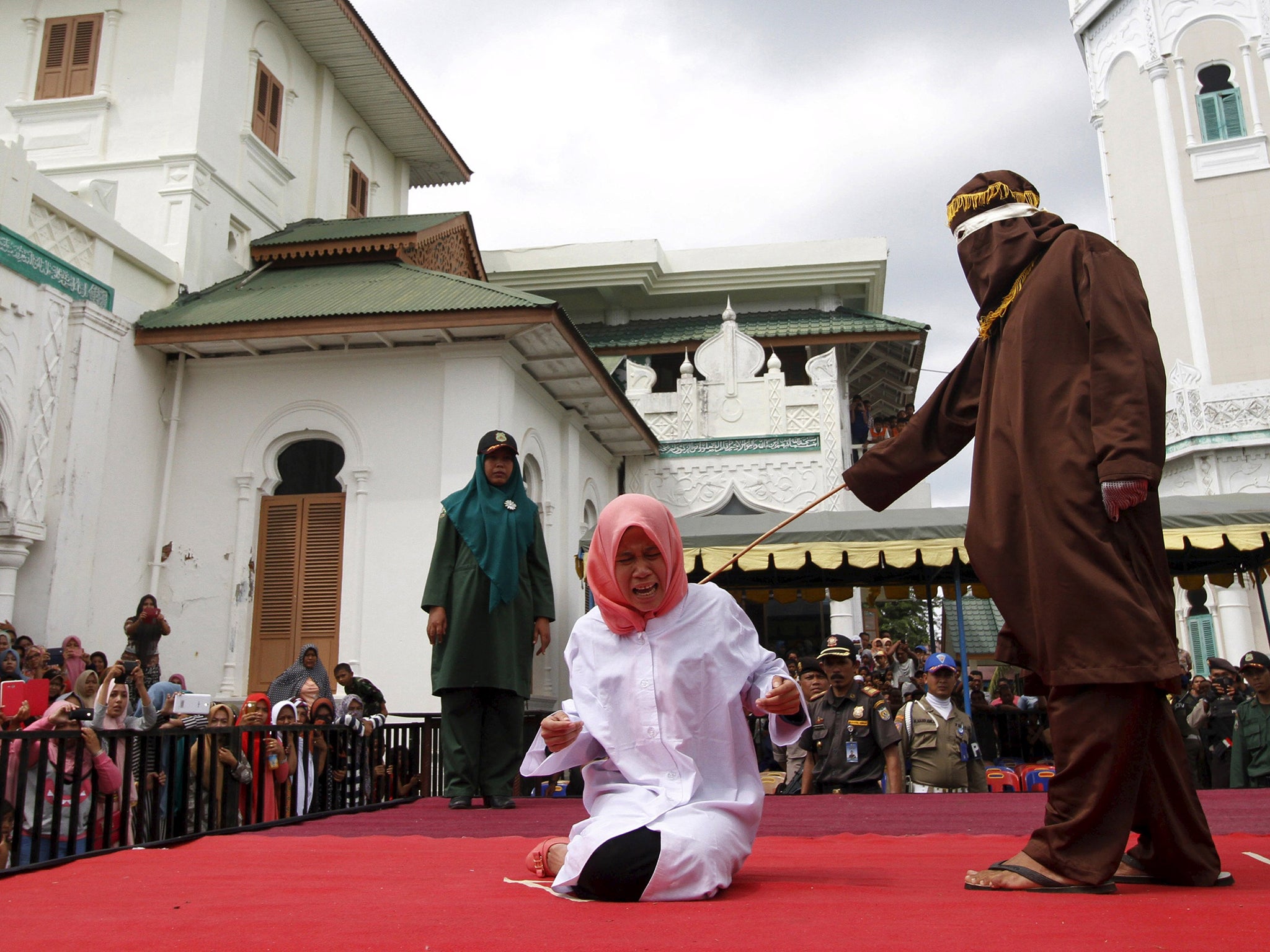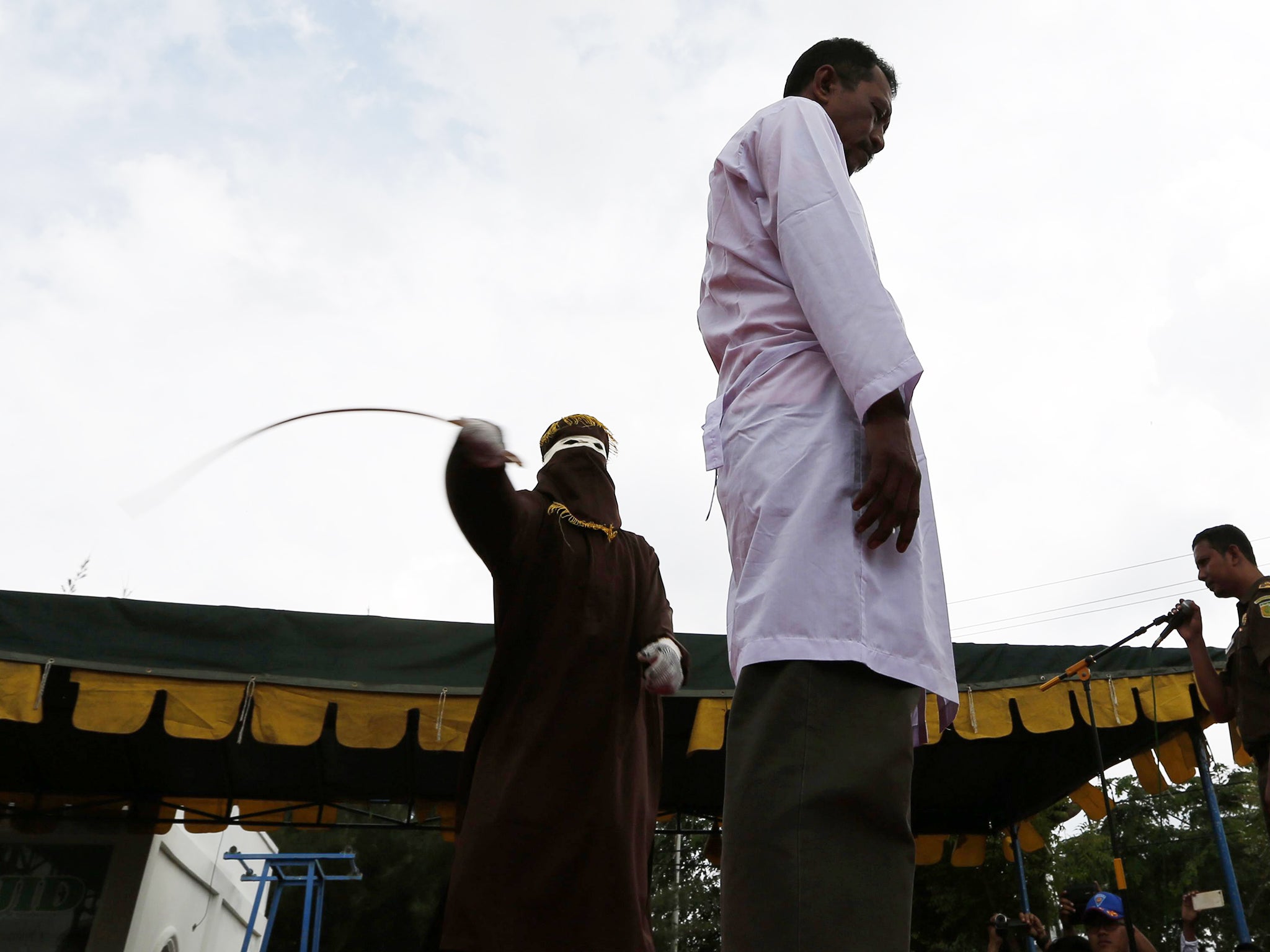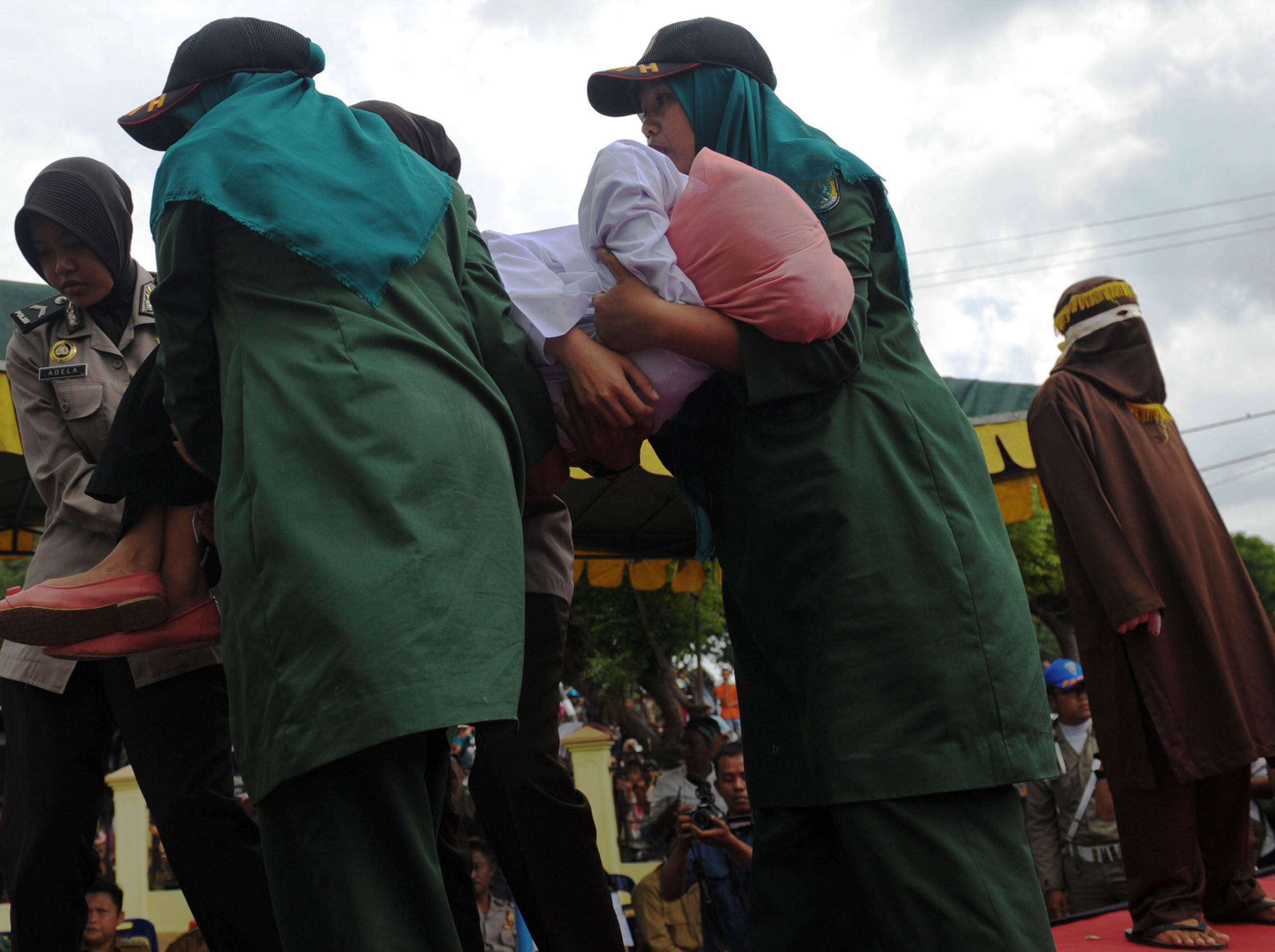Young unmarried couple brutally caned in Indonesia for 'affectionate contact'
A 20-year-old woman was punished under Shariah law with five agonising lashes

Your support helps us to tell the story
From reproductive rights to climate change to Big Tech, The Independent is on the ground when the story is developing. Whether it's investigating the financials of Elon Musk's pro-Trump PAC or producing our latest documentary, 'The A Word', which shines a light on the American women fighting for reproductive rights, we know how important it is to parse out the facts from the messaging.
At such a critical moment in US history, we need reporters on the ground. Your donation allows us to keep sending journalists to speak to both sides of the story.
The Independent is trusted by Americans across the entire political spectrum. And unlike many other quality news outlets, we choose not to lock Americans out of our reporting and analysis with paywalls. We believe quality journalism should be available to everyone, paid for by those who can afford it.
Your support makes all the difference.A young unmarried woman and a man have been publically caned in Indonesia’s Aceh province for being "too intimate" with each other.
The two university students, 23-year-old Wahyudi Saputra and 20-year-old Nur Elita, were caned for “khalwat” – affectionate contact – in front of a crowd, according to the The Jakarta Post. They were struck five times each and Elita was reportedly carried by officials to an ambulance after the punishment.

Four other men were caned for “indecency and gambling”, prohibited under Islamic law.
All the victims were punished in the front yard of the Baiturrahim mosque in Banda Aceh, and one onlooker was Deputy Mayor Zainal Arifin.

“Take these punishments as a lesson. What has been done by these convicts should not be taken as an example. And I hope their canings in Meuraxa district today will be the last ever,” he said, according to Antara.
Aceh is the only region in Indonesia that implements this system of Shariah law and has done so since 2003 when it was granted special autonomy. Shariah law is still implemented across the Middle East and in Isis territories.
Join our commenting forum
Join thought-provoking conversations, follow other Independent readers and see their replies
Comments